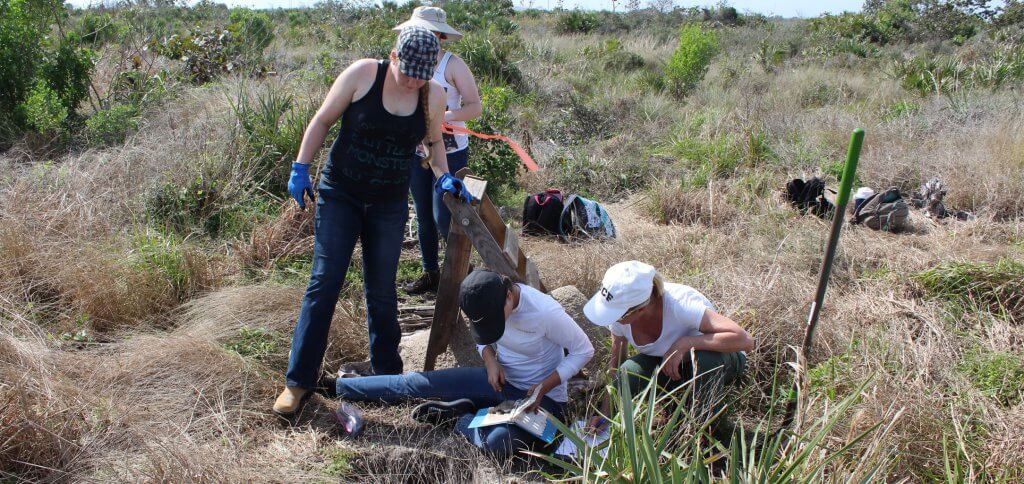Creating a Culture of Integrative Learning at the Program Level

Dr. Stacy Barber
UCF Department of Anthropology
Integrative learning asks our students to plan their educational trajectory, engage in high-impact practices, and understand how their educational experiences translate into real-world skills. The benefits of integrative learning, and particularly high-impact practices, are well documented in the pedagogical literature (e.g., Kuh 2008). The value of integrative learning is such that the UCF has made a significant institutional commitment to increasing such opportunities for students in all degree programs. Indeed, the Collective Impact Strategic Plan of 2016 has specific metrics related to internships (Goal 1), service-learning (Goal 3), and undergraduate research (Goal 3)—all high-impact practices central to integrative learning (UCF Board of Trustees 2016). Some important elements of integrative learning, such as initial planning of educational trajectories and early high-impact activities like first-year seminars or joining a learning community, take place before students encounter their degree program advisors. However, some of the most important aspects of integrative learning take place in the later years of college. Research suggests that high-impact practices related to the major field of study are extremely valuable, and can include career readiness activities like capstone courses (Kuh 2008: 11).
Given the clear advantages integrative learning confers on students (Kuh 2008) and UCF’s institutional priorities, it behooves academic programs to develop and expand on existing opportunities for students. Adding a few classes to the curriculum or changing a requirement here or there in a degree program isn’t enough. Integrative learning requires broad based buy-in from members of a departmental or program community: students, staff, faculty, instructors, and administrators. Academic programs need to foster a culture of integrative learning such that its value, and students’ involvement therein, “go without saying.” To be a student in such a program is to be an integrative learner.
Fortunately, most academic programs already have many of the pieces in place to begin fostering a culture of integrative learning. Here are a few ideas for how to build on your program’s existing strengths, drawn from my experiences in the Anthropology Department.
Build Infrastructure
Know where the holistic picture of integrative learning in your program is housed. Someone in each academic program needs to have a program-level understanding of where and how integrative learning is taking place. In Anthropology this person is the Undergraduate Coordinator, but perhaps it could be the Chair of the Undergraduate Curriculum Committee or someone else tasked with just the responsibility for integrative learning. This person needs to know when and how students in the degree program are involved in integrative learning.
Require all elements of integrative learning as part of the degree program. Degree programs need to have integrative learning as part of their basic architecture. Integrative learning is not just high-impact practices, it also comprises intentional learning and metacognition. Does your degree require that students engage in all three areas of learning? In Anthropology, and I suspect many other programs, this is where we are lacking. We have required a high-impact practice of all students in our new Methods and Practice Track within the major, but opportunities for students to develop techniques for setting goals and hone self-awareness of skill sets remain optional. We have not performed the necessary curriculum mapping to determine where and when students should engage in other aspects of integrative learning—but we’re working on it.
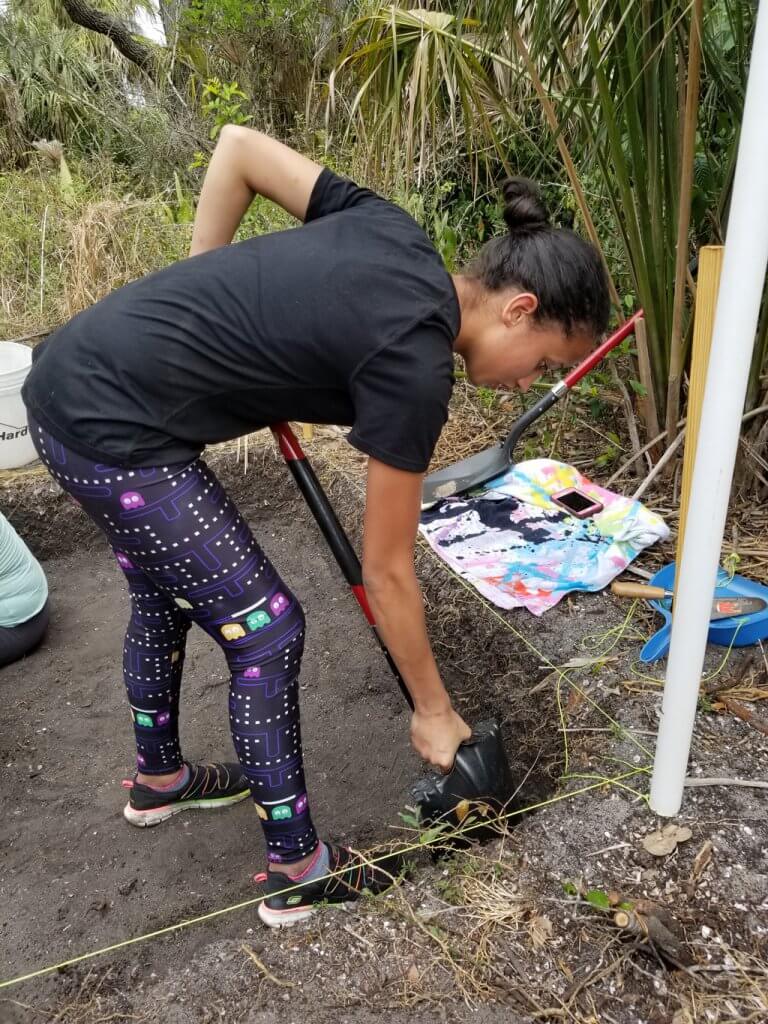
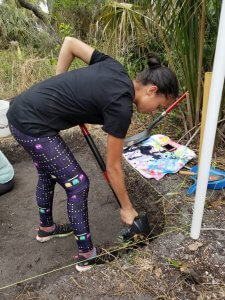
Build Infrastructure
Know where the holistic picture of integrative learning in your program is housed. Someone in each academic program needs to have a program-level understanding of where and how integrative learning is taking place. In Anthropology this person is the Undergraduate Coordinator, but perhaps it could be the Chair of the Undergraduate Curriculum Committee or someone else tasked with just the responsibility for integrative learning. This person needs to know when and how students in the degree program are involved in integrative learning.
Require all elements of integrative learning as part of the degree program. Degree programs need to have integrative learning as part of their basic architecture. Integrative learning is not just high-impact practices, it also comprises intentional learning and metacognition. Does your degree require that students engage in all three areas of learning? In Anthropology, and I suspect many other programs, this is where we are lacking. We have required a high-impact practice of all students in our new Methods and Practice Track within the major, but opportunities for students to develop techniques for setting goals and hone self-awareness of skill sets remain optional. We have not performed the necessary curriculum mapping to determine where and when students should engage in other aspects of integrative learning—but we’re working on it.
Create Opportunities
Ensure that students have access to integrative-learning opportunities. Students can’t be integrative learners if they don’t have options available to them. Since UCF is a metropolitan university, our students have incredibly diverse and often complicated lives. A one-size-fits-all approach simply won’t work to integrative learning. Has your program developed a range of opportunities for integrative learning? UCF Anthropology has spent years developing a variety of programs for our students, particularly in the area of high-impact practices. These include:
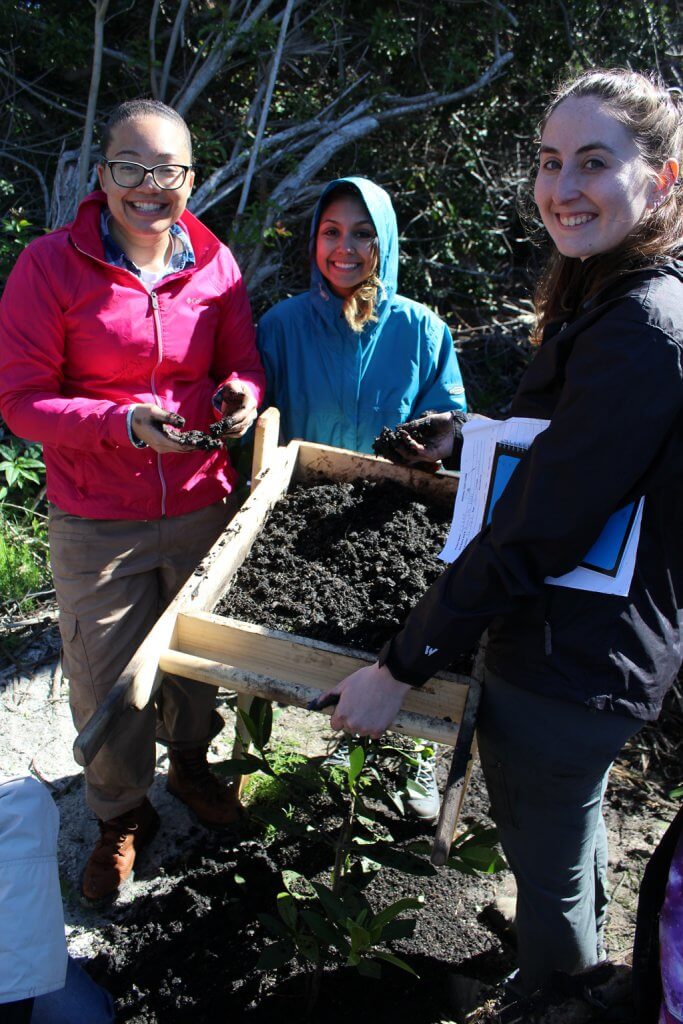
- Developing standing internships specific to our discipline. The longest-running is only three years old, but involves as many as 12 students working together on an active archaeological excavation at Cape Canaveral. Administrators tasked with building capacity in this area have also repeatedly made faculty aware of the need for more opportunities, encouraging all to develop local partnerships that will benefit students. We also have sought internal grant support to allow several faculty to dedicate time to expand offerings in this area.
- Encouraging on-campus research opportunities like Honors in the Major and Directed Independent research. Off-campus work like internships sometimes isn’t feasible for students, making programs close to campus important. UCF Anthropology encourages all faculty to engage in undergraduate research programs and has high faculty participation. With high-impact practices now required for the major, we have begun tracking these for annual assessment as a means of quantifying and evaluating student participation.
- Offering credit for (and advertising) off-campus programs like field schools and study abroad. Some students have the resources to go farther afield, and UCF Anthropology encourages those endeavors by providing credit toward the major for off-campus training programs. Faculty are asked to approve field programs in their specific areas of expertise, helping to ensure that students have quality educational experiences. The current master list is low-tech: a binder in the Anthropology main office. But students are also notified of opportunities digitally via occasional email updates from the Undergraduate Coordinator. Importantly, students often first learn about field school and other high-impact learning resources during encounters with office staff, meaning that everyone in the program needs to be ready to help students navigate the range of opportunities available.
- Gaining high-impact experience designations (SL, IE, RI) for classes. UCF Anthropology is in the nascent stages of this process, but many departments already excel here.
- Developing standing internships specific to our discipline. The longest-running is only three years old, but involves as many as 12 students working together on an active archaeological excavation at Cape Canaveral. Administrators tasked with building capacity in this area have also repeatedly made faculty aware of the need for more opportunities, encouraging all to develop local partnerships that will benefit students. We also have sought internal grant support to allow several faculty to dedicate time to expand offerings in this area.
- Encouraging on-campus research opportunities like Honors in the Major and Directed Independent research. Off-campus work like internships sometimes isn’t feasible for students, making programs close to campus important. UCF Anthropology encourages all faculty to engage in undergraduate research programs and has high faculty participation. With high-impact practices now required for the major, we have begun tracking these for annual assessment as a means of quantifying and evaluating student participation.
- Offering credit for (and advertising) off-campus programs like field schools and study abroad. Some students have the resources to go farther afield, and UCF Anthropology encourages those endeavors by providing credit toward the major for off-campus training programs. Faculty are asked to approve field programs in their specific areas of expertise, helping to ensure that students have quality educational experiences. The current master list is low-tech: a binder in the Anthropology main office. But students are also notified of opportunities digitally via occasional email updates from the Undergraduate Coordinator. Importantly, students often first learn about field school and other high-impact learning resources during encounters with office staff, meaning that everyone in the program needs to be ready to help students navigate the range of opportunities available.
- Gaining high-impact experience designations (SL, IE, RI) for classes. UCF Anthropology is in the nascent stages of this process, but many departments already excel here.
It is also important to support online integrative learning. While much integrative learning happens outside the classroom or off-campus, it can also happen in class and online. UCF Anthropology has developed an online Professionalism Workshop that is available to all active students through Webcourses. Once students self-enroll through a hyperlink provided by department administrators, it remains accessible in their Webcourse class listing until graduation. Anthropology faculty designed the program specifically to be a repository of valuable links to online resources pertaining to everything from job searches to professional societies. Assignments include identifying jobs of interest and making an appointment with UCF Career Services.
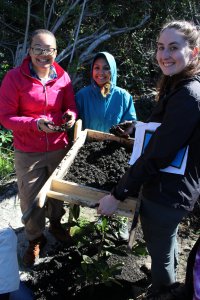
Encourage Peer Support
Students can make huge learning gains from their peers (Topping 2007). Some aspects of integrative learning are particularly daunting to students who may be tackling unfamiliar material, learning new skills, or engaging in off-campus professional activities for the first time. Support from students who have already done things like study abroad, Honors in the Major, or internships can help to reduce anxieties and encourage participation. Student clubs are an ideal vehicle for creating peer-mentoring connections, but those clubs too require fostering by faculty.
Moving Forward
All degree programs at UCF surely have some aspects of integrative learning already in place. The key is to evaluate whether they are coordinated in a way that affords students the full range of opportunities that will help them succeed in college and beyond. Integrative learning in UCF Anthropology, like most programs, is a work in progress. Creating a culture takes time. But once it gains momentum, culture is self-perpetuating as community members reproduce values and expectations through their actions. Taking advantage of existing resources, we can all create cultures of integrative learning.
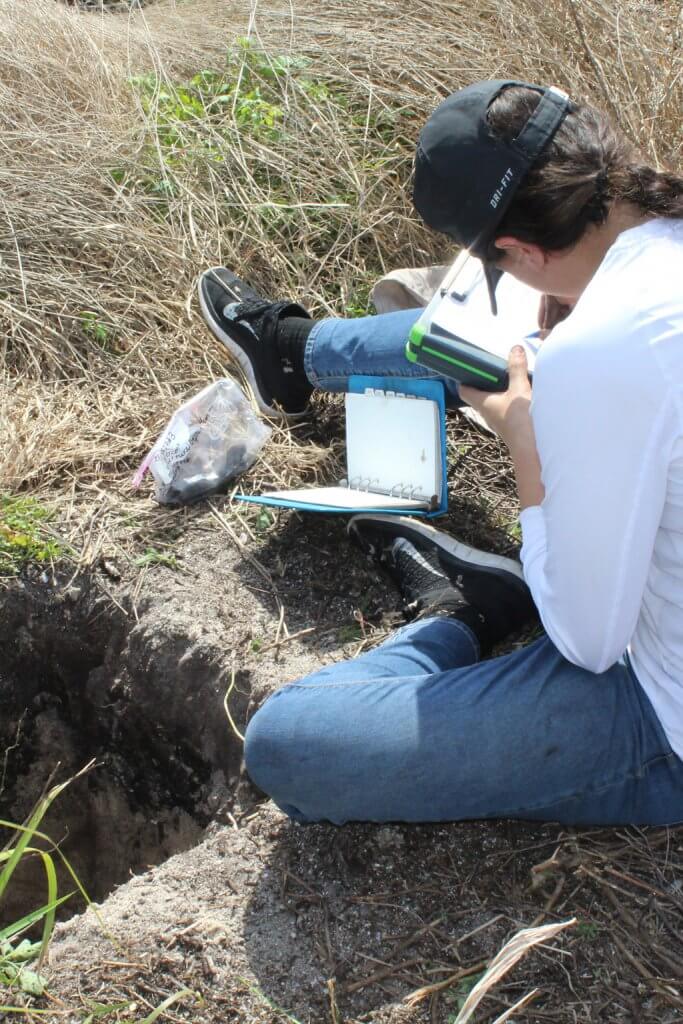
Encourage Peer Support
Students can make huge learning gains from their peers (Topping 2007). Some aspects of integrative learning are particularly daunting to students who may be tackling unfamiliar material, learning new skills, or engaging in off-campus professional activities for the first time. Support from students who have already done things like study abroad, Honors in the Major, or internships can help to reduce anxieties and encourage participation. Student clubs are an ideal vehicle for creating peer-mentoring connections, but those clubs too require fostering by faculty.
Moving Forward
All degree programs at UCF surely have some aspects of integrative learning already in place. The key is to evaluate whether they are coordinated in a way that affords students the full range of opportunities that will help them succeed in college and beyond. Integrative learning in UCF Anthropology, like most programs, is a work in progress. Creating a culture takes time. But once it gains momentum, culture is self-perpetuating as community members reproduce values and expectations through their actions. Taking advantage of existing resources, we can all create cultures of integrative learning.
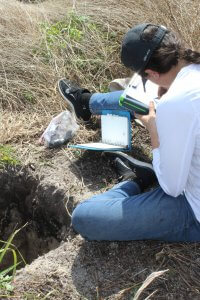
Works Cited
Kuh, George
2008 High-Impact Educational Practices: What they are, who has access to them, and why they matter. Association of American Colleges and Universities, Washington, D.C.
Topping, Keith J.
2007 Trends in Peer Learning. Educational Psychology 25: 6, 631-645, DOI: 10.1080/01443410500345172
UCF Board of Trustees
2016 UCF Collective Impact Strategic Plan. https://www.ucf.edu/wp-content/uploads/sites/5/2012/08/UCF-Strategic-Plan-BOT-FINAL-052616-Web.pdf. Accessed November 29, 2018.
